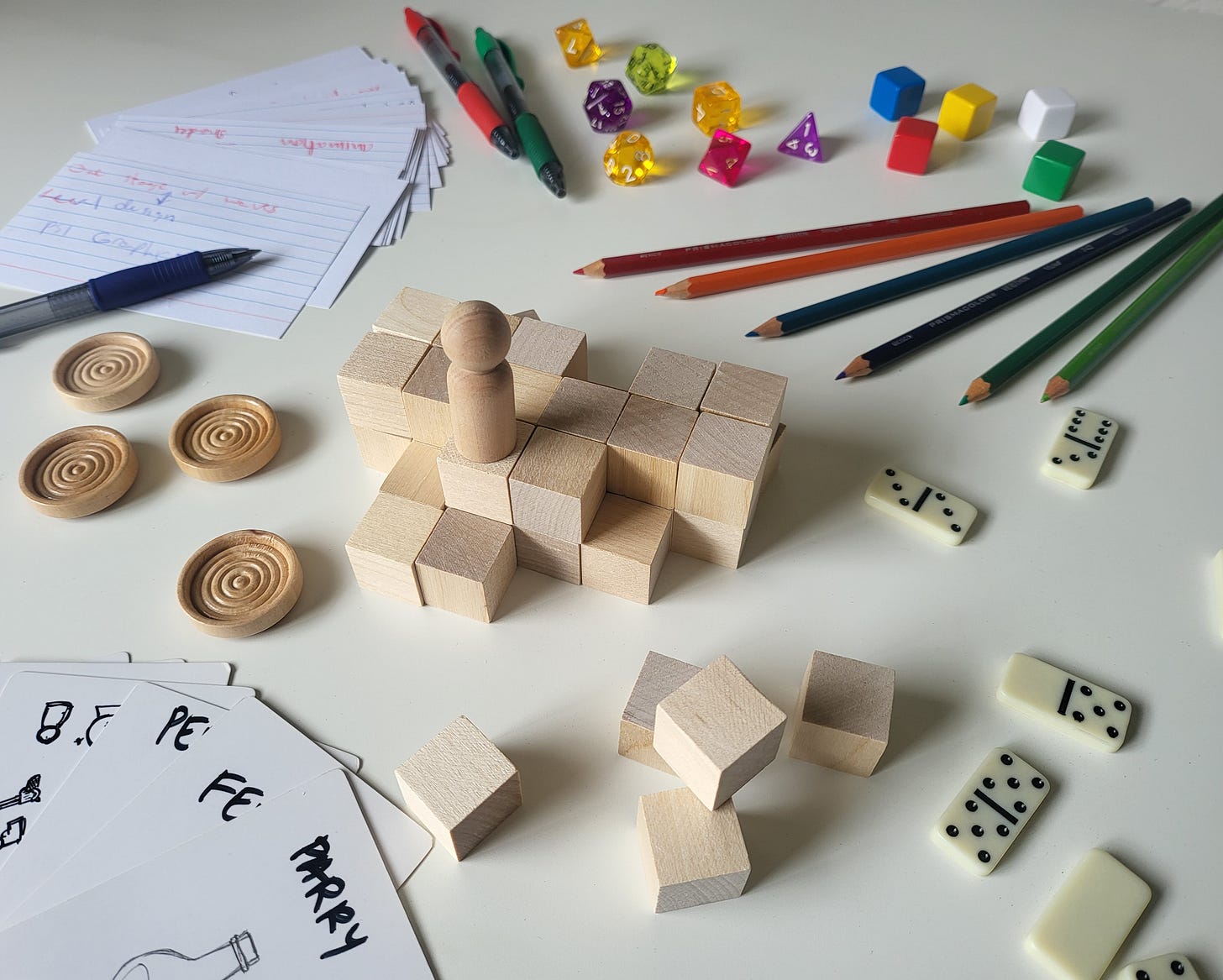Play is a universal activity. It does not need structure. It does not require rules. It thrives on constraints. It is a natural expression of innate personality. It is an interaction with the world inside and outside.
Animals play without being taught or told to – dogs fetch sticks, bees roll beads1 , otters wrestle, cats chase string, dolphins play catch with pufferfish2, and of course, we humans play all sorts of games.
Play is its own reward. There is no inherent utility nor value in the activity. Of course, we can ascribe meaning and purpose after the fact. However, in the purest sense, play does not care for purpose.
Yet, living playfully is deeply rewarding.
Living playfully means approaching the world with wonder and curiosity.
Living playfully is an attitude that forgives us our flaws and affords us space to grow.
Living playfully allows us to see that the experience itself is valuable.
Living playfully affords us the vantage that success and failure do not define our lives.
Living playfully means always being ready to step into the magic circle during our mundane lives and finding the spark of joy that's present in it.
We’re not getting out of this life alive, anyway.
Quaglia, Sofia. “Do Bees Play? A Groundbreaking Study Says Yes.” National Geographic, 27 Oct. 2022, www.nationalgeographic.com/animals/article/bees-can-play-study-shows-bumblebees-insect-intelligence.
“Dolphins Play Catch with a Pufferfish! | Spy in the Wild | BBC Earth.” YouTube, 19 Sept. 2019, www.youtube.com/watch?v=0T5aGLybXEs.




